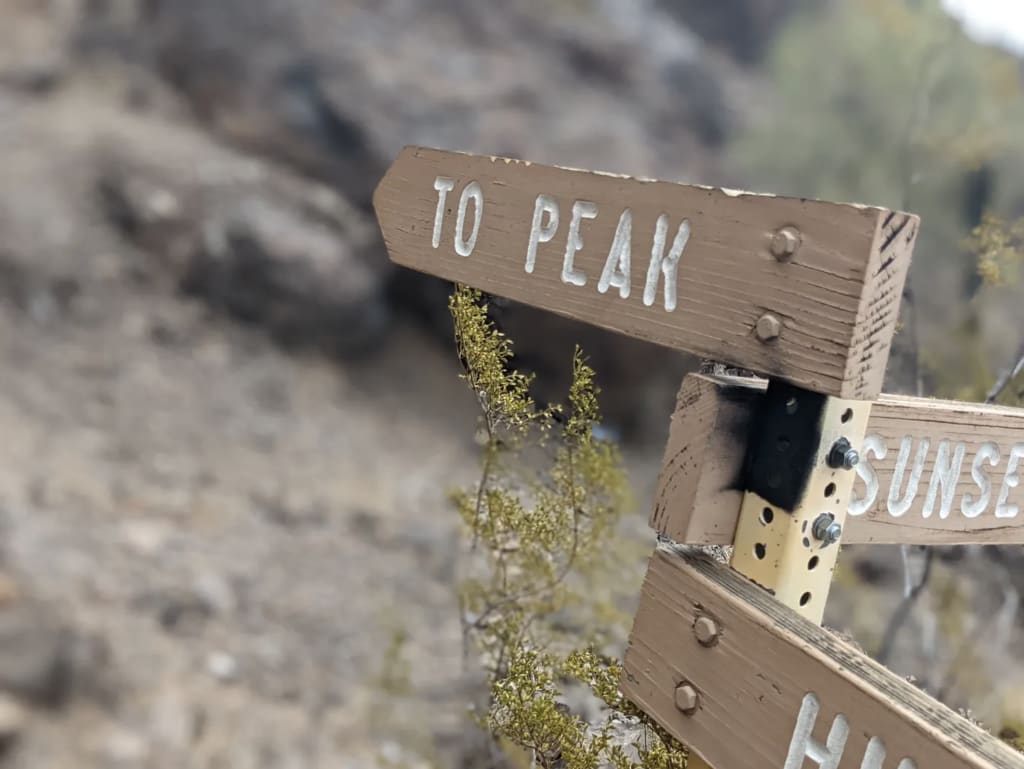Content warning
This story may contain sensitive material or discuss topics that some readers may find distressing. Reader discretion is advised. The views and opinions expressed in this story are those of the author and do not necessarily reflect the official policy or position of Vocal.
Healthy Relationships are Bizarre
Dating After Escaping Abuse

Beginning a new relationship after surviving abuse can feel strange and uncomfortable. You may have developed coping mechanisms during the abusive relationship that helped you survive, but those same strategies can sometimes sabotage your chances of a healthy relationship going forward.
The Aftermath of Abuse
An abusive relationship can leave lasting scars, affecting how survivors perceive and approach future relationships. The trauma experienced can cause feelings of fear, mistrust, and vulnerability. These emotions may manifest in various ways, including self-sabotage, emotional distance, or difficulty with intimacy.
Recognizing and understanding these patterns can be the first step toward building healthier connections.
Impact of Attachment Styles
Each individual’s attachment style plays a significant role in shaping their behaviors and responses in relationships. For abuse survivors, attachment styles can be further influenced by past experiences. Those with an anxious attachment may seek constant reassurance, fear abandonment, or struggle with feelings of unworthiness. Avoidant attachment survivors may create distance, fear intimacy, or have difficulties with vulnerability.
Understanding these attachment styles can help partners navigate the complexities that arise in their relationship.
Overcoming Obstacles
Open and honest communication is vital in building a healthy relationship after abuse. Survivors and their partners must create a safe space for dialogue, allowing for the expression of concerns, fears, and triggers. Active listening, empathy, and validation are key components in fostering understanding and creating a supportive environment. Partners can develop strategies to overcome obstacles, establish boundaries, and foster a sense of security.
Trust Building
Building trust is a crucial aspect of moving forward in a new relationship, one that can be extremely difficult for survivors. Trust-building requires patience, consistency, and a willingness to address any triggers that may arise.
Survivors and their partners can work collaboratively to establish trust-building activities, such as shared experiences, open conversations about boundaries, and creating positive relationship rituals. Gradually, trust can be rebuilt, and the relationship can grow stronger.
Supporting a Partner
As a survivor’s partner, there are many things you can do to support them through the challenges that may arise in the aftermath of abuse. First and foremost, it’s important to believe and validate their experiences. Many survivors struggle with feelings of shame, guilt, and self-blame, and having a partner who is understanding and non-judgmental can be incredibly healing. It’s also important to be patient and understanding of their triggers and reactions.
Survivors may have intense emotional reactions to seemingly small things, and it’s important to recognize that these reactions are rooted in their trauma. By providing a safe and supportive environment for your partner to process their experiences, you can help them work through their trauma and build a stronger, healthier relationship together. Effective communication is key, and it may be helpful to seek the guidance of a therapist or counselor who specializes in working with survivors of abuse.
Entering into a healthy relationship after experiencing abuse can be a complex and emotional journey. It’s essential to acknowledge the challenges that survivors face and the impact of past trauma on their behavior and attachment styles. By fostering open communication, understanding, and a commitment to healing, survivors and their partners can work together to navigate the complexities and build a relationship grounded in trust, support, and growth.
Remember, healing from abuse is a process, and it’s okay to take things slow. Don’t be afraid to seek support from a therapist or support group, and give yourself the time and space you need to heal and grow. A healthy relationship is possible, but it takes effort and commitment from both partners.
I'm Glad You're Here
After years spent advocating for domestic violence victims while hiding my own suffering, I refuse to let anyone feel abandoned in their abuse or its aftermath.
Trauma sucks. Recovery shouldn't. That's why I'm making communicating about my own experiences as normal as possible while actively calling out abuse and inequity when I see it.
My aim is to give others a safe environment in which to develop these tools so we can start making some much-needed changes together.
Please support my continued writing (and help me inch my way toward my first book) by following and engaging with me on trauma and advocacy. I'd love to hear from you!
Subscribe in one click to receive your FREE digital copy of my new guided journal, “Empower and Heal: 90 Days of Transformational Prompts for Trauma Recovery, Self-Discovery, and Growth”, delivered straight to your inbox!
About the Creator
Veronica Wren
Trauma sucks. Recovery shouldn't. Subscribe here for your FREE exclusive guided journal
❤️🩹 bio.link/veronicawren ❤️🩹
Domestic Abuse & CPTSD Recovery Coach
Enjoyed the story? Support the Creator.
Subscribe for free to receive all their stories in your feed. You could also pledge your support or give them a one-off tip, letting them know you appreciate their work.






Comments
There are no comments for this story
Be the first to respond and start the conversation.